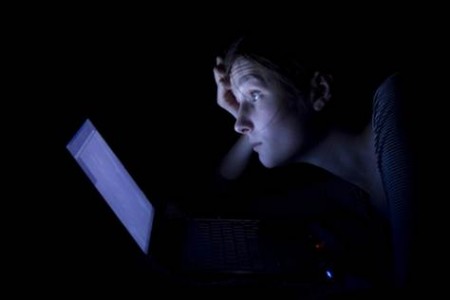Daca ai avut vreodata probleme in a adormi dupa ce ai utilizat o tableta iPad, un laptop sau un PC, atunci exista posibilitatea ca aceste dispozitive sa iti fi afectat somnul. Cercetatorii Universitatii California din Los Angeles(UCLA) spun ca lumina emisa de catre ecranele back-lit ale acestui gen de dispozitive genereaza o scadere a eliberarii in corp a unui produs chimic numit melatonina. Corpul nostru elibereaza acest compus chimic pentru a induce starea de somn, insa ecranele tabletei iPad, a laptop/PC-urilor ori a televizoarelor inhiba eliberarea melatoninei si ecranele back-lit par a fi problema.
The bright light emitted by an iPad could give some people reading before bedtime a bout of insomnia, researchers suggest. This is because the iPad uses a back-lit display rather than the “e-paper” found in other popular e-readers such as the Kindle that mimic the printed, duller page by reflecting light from elsewhere. “If you’re using a Kindle — which doesn’t use a significant light source — that may potentially have less of an impact compared to a device like a laptop or an iPad with more significant light exposure,” said Alon Avidan, a neurologist and associate director of the Sleep Disorders Center at the University of California, Los Angeles (UCLA).
In mod normal corpul uman elibereaza melatonina la lasarea noptii si ne induce o stare de somnolenta, insa prezenta luminii artificiale da peste cap modul in care lucreaza corpul nostru. Din moment ce lumina artificiala a atator produse electronice ne influenteaza, probabil va intrebati de ce este adusa in prim-plan tableta iPad. Ei bine cercetatorii spun ca acest produs este tinut cel mai aproape de ochii nostri si este cel mai “periculos” pentru un somn linistit, deci teoretic ar trebui sa aveti grija cum utilizati un asemenea dispozitiv inainte sa va culcati pentru a va asigura ca veti adormi fara probleme.
Sleep researchers have long known that light inhibits the release of melatonin, a hormone that settles the body into sleep mode toward evening time. “Melatonin is pro-sleep,” said Frisca Yan-Go, director of the UCLA Sleep Disorders Center. Any artificial light source at night, whether it be from a television or a bedside lamp, can mess with the body’s melatonin production, Yan-Go said, which rises when darkness falls, then tapers off toward morning as part of a natural cycle called the Circadian rhythm.
According to Yan-Go and other sleep researchers, the reason for concern with the iPad over other forms of late-night light is that readers hold the device relatively close to their face. In theory, this could mean that the iPad affects the body’s melatonin cycle more than watching late-night reruns on a television that is clear across the room, Yan-Go said.






















